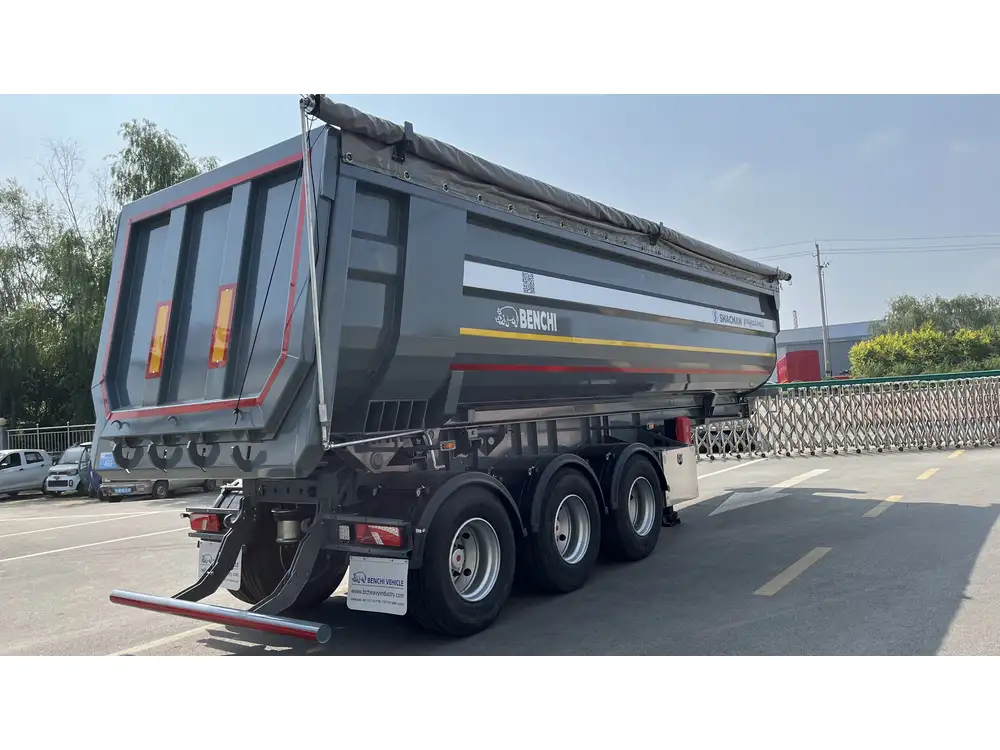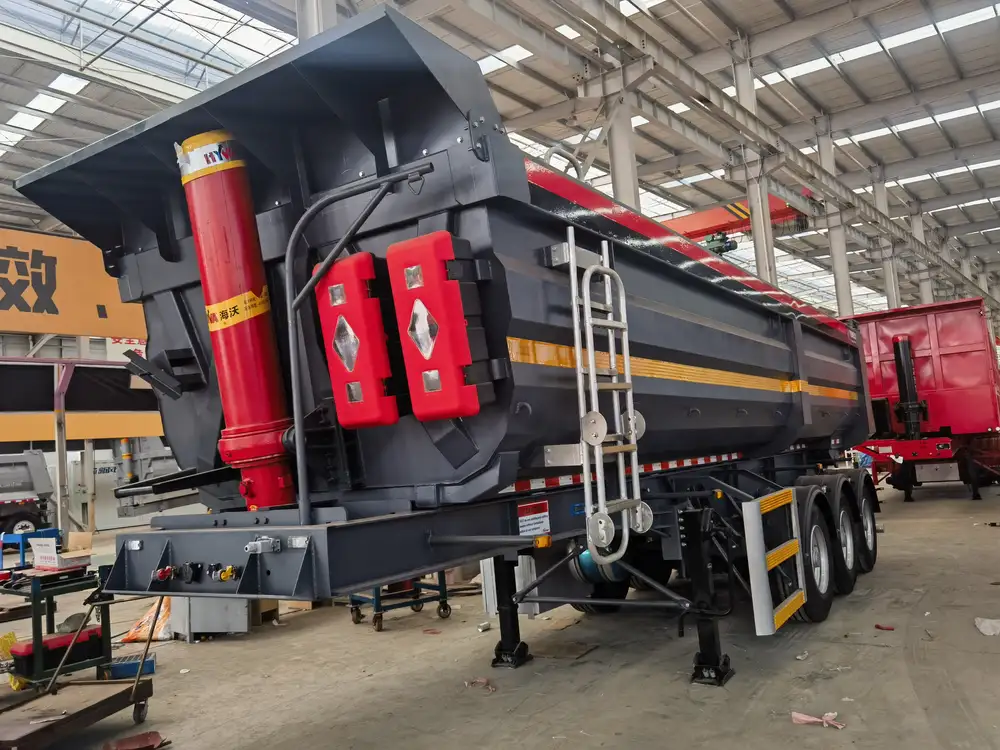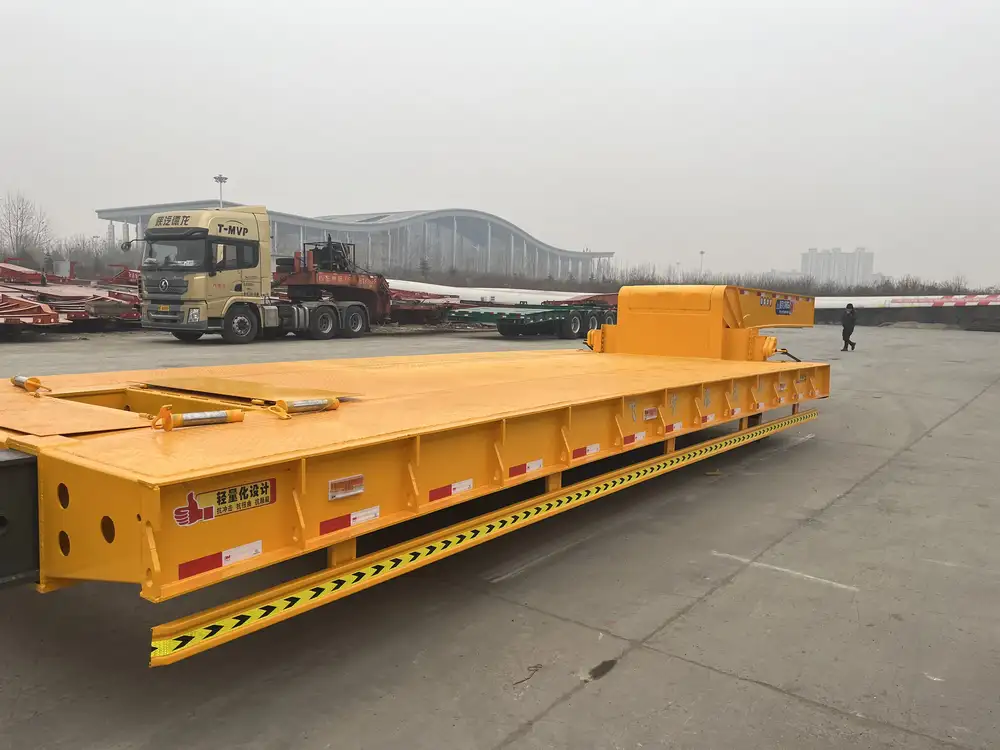When it comes to purchasing a flatbed trailer, understanding the Federal Excise Tax (FET) that applies is crucial for effective budgeting and compliance. In this comprehensive guide, we delve into what FET is, how it affects flatbed trailers, and what potential buyers and manufacturers need to know for a smooth transaction.
What is Federal Excise Tax (FET)?
The Federal Excise Tax (FET) is a tax levied by the U.S. government on the manufacturing and sale of certain goods, including specific types of transportation equipment. Introduced to fund various federal programs, this tax is especially relevant for businesses involved in heavy-duty vehicle transactions.
FET Rate for Flatbed Trailers
The FET rate for flatbed trailers is generally set at 12% of the selling price, including any transportation costs incurred prior to the sale. This applies to new trailers and certain used trailers that qualify under specific conditions.

Applicability of FET
- New Trailers: FET is typically applied to the sale of new flatbed trailers.
- Used Trailers: If a used trailer is sold by a manufacturer or retailer who has paid the FET in the first sale, subsequent sales might not be subject to the FET, provided certain criteria are met.
Understanding the Calculation
To provide clarity, let’s break down a simple calculation for a flatbed trailer to illustrate how FET is imposed.
| Selling Price | FET Rate | FET Amount | Total Price Including FET |
|---|---|---|---|
| $30,000 | 12% | $3,600 | $33,600 |
| $50,000 | 12% | $6,000 | $56,000 |
| $80,000 | 12% | $9,600 | $89,600 |
From the table, you can see how the FET adds a significant amount to the overall cost. The above examples allow potential buyers to comprehend the additional financial responsibility they may incur.
Common Misconceptions About FET
It is critical to identify and dispel common myths surrounding FET to avoid confusion and miscalculated budgets.
Myth: FET is Applicable to All Trailers
- Reality: FET is specifically focused on certain heavy-duty trailers. Other types of trailers may be exempt.
Myth: Used Trailers Always Carry FET
- Reality: If the FET was paid on the initial sale, subsequent sales of used trailers may be exempt from additional FET charges under certain conditions.
Myth: FET is Just Another Tax
- Reality: Understanding FET can help manufacturers and buyers avoid pitfalls and financial miscalculations, facilitating better financial planning.

Who is Responsible for Paying FET?
The seller is responsible for collecting and remitting the FET to the IRS. Buyers, however, should be aware of the FET implications in the trailer price. Properly informing customers can aid in fostering trust and loyalty within the marketplace.
Implications of FET on Businesses
For businesses relying on flatbed trailers, the implications of FET extend beyond just upfront costs.
Impact on Pricing Strategy
When establishing a pricing strategy, manufacturers and sellers need to ensure the FET is factored into the overall cost, which can affect competitiveness in the marketplace. Transparency regarding tax implications can enhance customer confidence and satisfaction.

Importance of Compliance
Staying compliant with FET regulations is not just a legal obligation but can also influence the overall reputation of a manufacturer or seller. Failing to adhere to tax regulations could lead to penalties and negatively impact business operations. Hence, a thorough understanding of FET becomes indispensable.
Factors Influencing FET Charges
Several factors can influence the total FET charged on flatbed trailers:
Type of Trailer
Different types of trailers may carry varying FET rates. Tailor your product offerings accordingly while adjusting pricing to reflect these differences.

Manufacturer’s Sales Strategy
The sales approach adopted by manufacturers can dramatically influence how FET is perceived and managed. Offering financing options that clearly outline FET responsibilities can also increase customer satisfaction.
Customer Education
Educating customers about FET can help demystify the purchasing process and lead to a smoother transaction. Providing detailed documentation and open lines of communication can fortify buyer relationships.
Navigating Regulatory Changes
The FET landscape is subject to change based on legislation. Regularly review regulatory updates to adjust your pricing strategy accordingly.

The Future of FET
Looking ahead, potential changes in federal policies can impact the FET landscape. An awareness of current events and potential legislative discussions can help manufacturers and buyers prepare for upcoming changes. Proactive measures can position businesses for success in an ever-evolving regulatory environment.
Tips for Manufacturers regarding FET Compliance
Keep Detailed Records: Maintain accurate records of all transactions subject to FET to facilitate reporting and compliance audits.
Educate Your Sales Team: Ensure that your sales team is equipped with the knowledge regarding FET to effectively communicate with potential buyers.
Develop Clear Documentation: Generate simplified yet comprehensive documentation for buyers outlining FET and its implications on their purchase.
The Importance of Transparency with Customers
As customers navigate the complexities of purchasing flatbed trailers, transparency becomes a pillar for successful transactions. Buyers appreciate clear communication regarding FET implications, pricing, and any additional costs involved in their purchases.

Building Trust Through Honesty
By adopting an honest and transparent approach, businesses can foster stronger relationships with clients. This transparency could also lead to increased customer loyalty, encouraging repeat business and referrals.
FAQs About FET on Flatbed Trailers
Q: How do I know if a trailer is subject to FET?
A: Generally, any newly manufactured heavy trailer sold for commercial use will likely be subject to FET. Always verify with your seller for confirmation.
Q: What if I buy a used trailer?
A: If the seller has already paid the FET for that trailer, you may not have to pay additional FET. Always check the details before purchase.
Q: Are there any exemptions to FET?
A: Certain exemptions do exist and usually pertain to specialized trailers or sales occurring under specific circumstances. Consult with a tax professional for guidance.
Q: How can I prepare for FET implications in my budget?
A: When budgeting for a trailer purchase, allocate an additional 12% on top of your intended purchase price specifically for FET. This approach can prevent unexpected financial strain.
Conclusion: FET Considerations for Future Purchases
Purchasing a flatbed trailer involves more than just understanding the cost of the trailer itself; it requires a keen insight into the FET that affects overall pricing. By thoroughly understanding FET, potential buyers and manufacturers can navigate the complexities of trailer transactions with ease, ensuring compliance, financial preparedness, and a positive customer experience.
We hope this comprehensive analysis empowers you in making informed decisions regarding flatbed trailer purchases, ensuring your journey through the maze of federal excise regulations is straightforward and beneficial. As you keep these considerations in mind, the world of trailer manufacturing and acquisition becomes more accessible and efficient.



